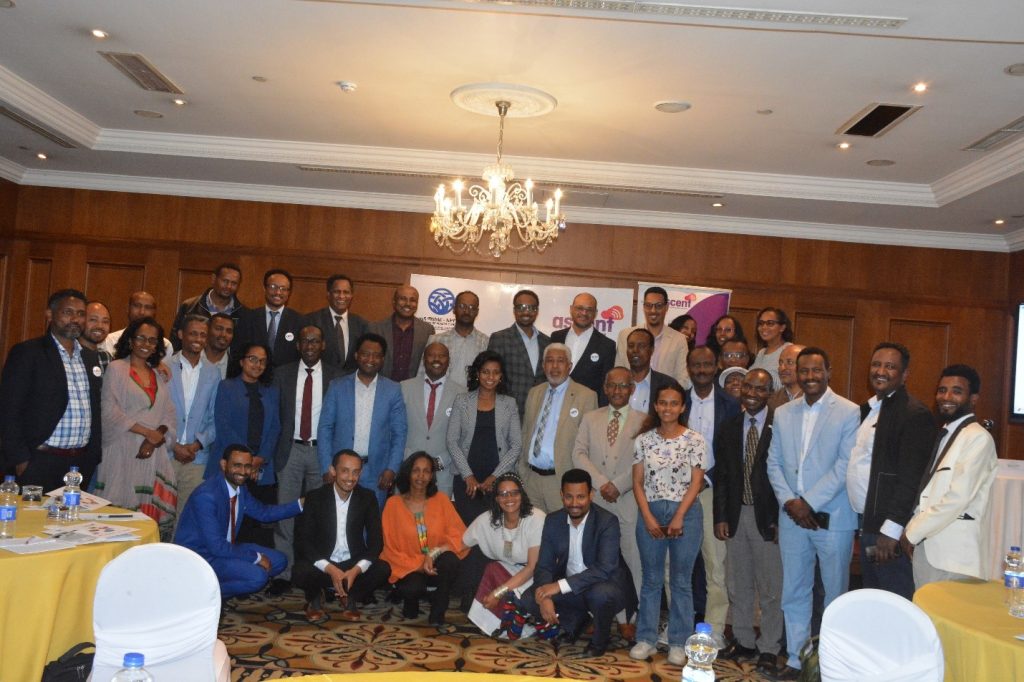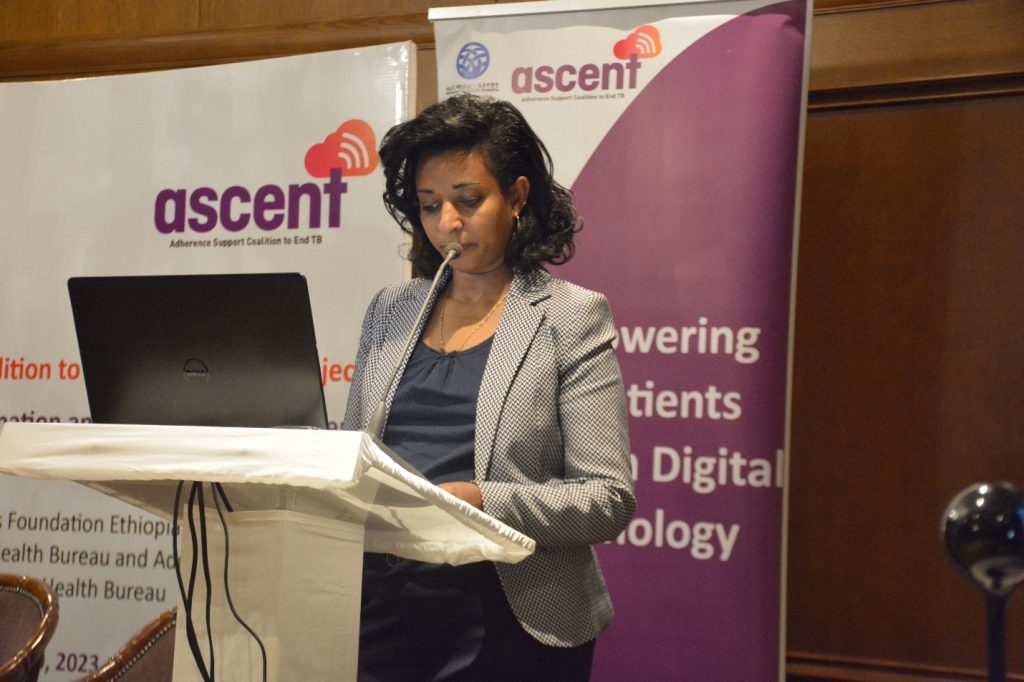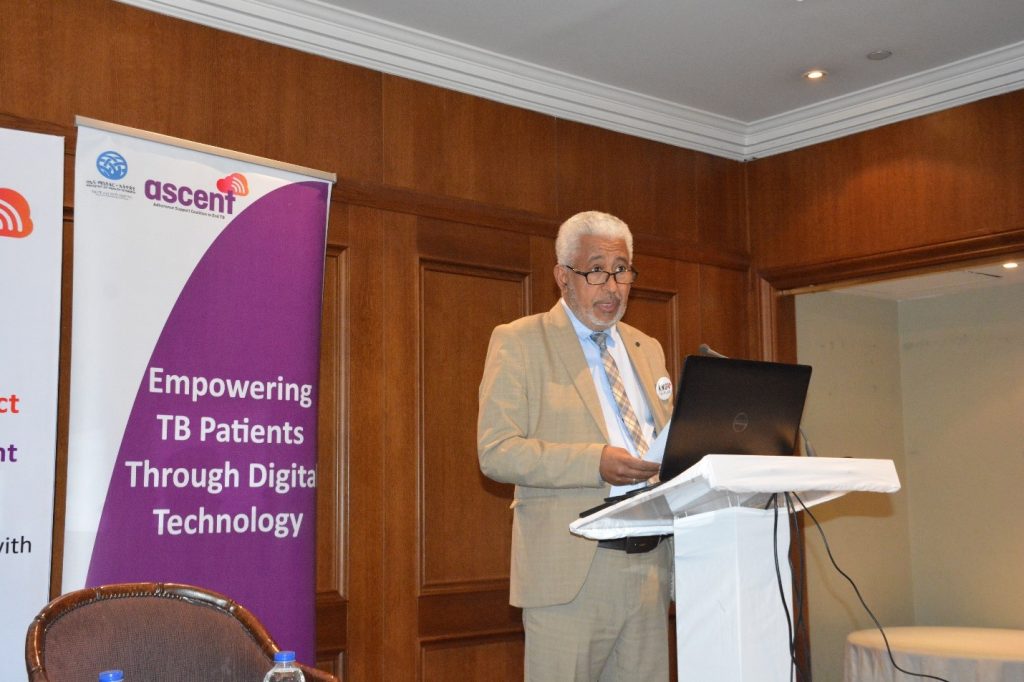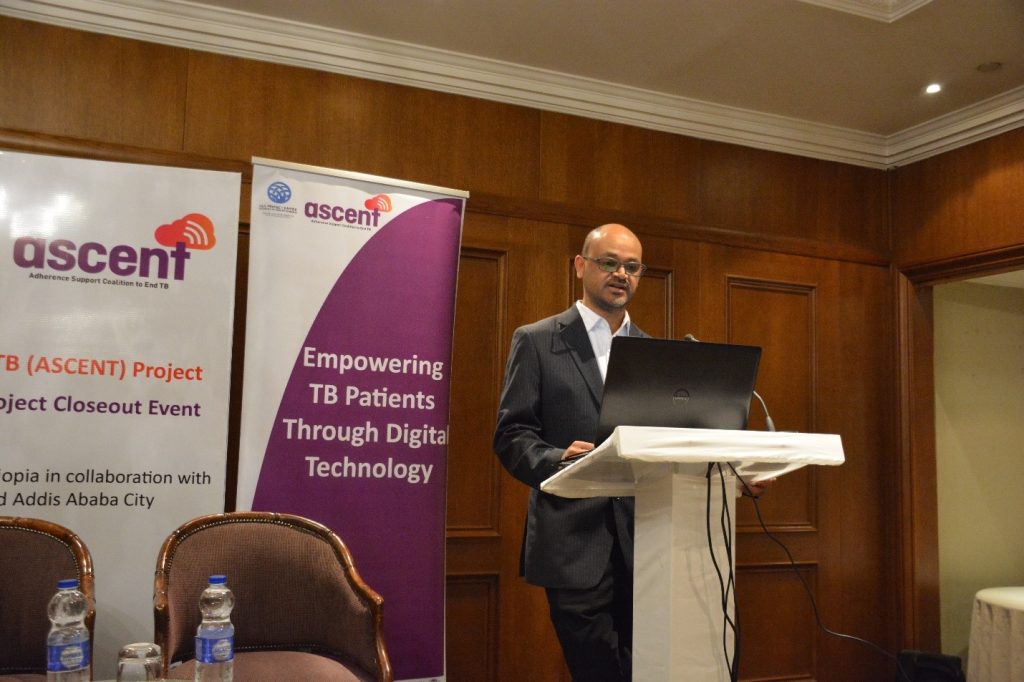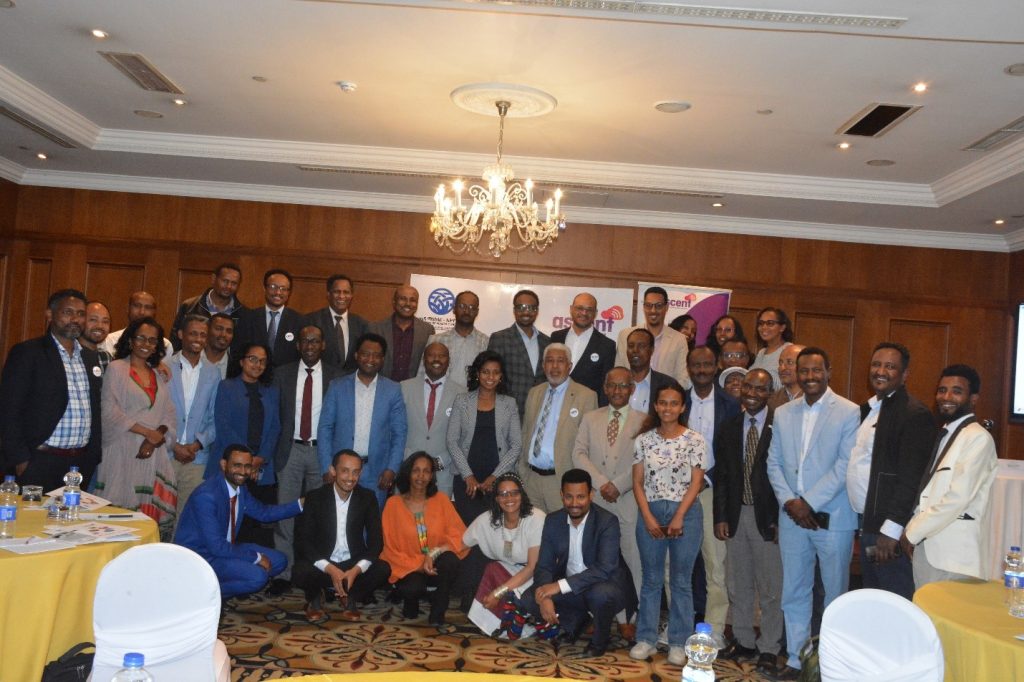Ethiopia was one of the seven countries that achieved the 2020 milestones of the WHO’s End TB Strategy. According to the 2023 Global TB Report by WHO, Ethiopia has reduced its TB incidence in approximately 34% since 2015, however it continues to have a Total TB incidence of 126 cases per 100,000 inhabitants.
On November 30, 2023, the ASCENT Project team based in Ethiopia hosted the Research Result Dissemination and Closeout event. This session was organized by KNCV Tuberculosis Foundation Ethiopia in collaboration with the Ethiopian Ministry of Health, Oromia Regional Health Bureau and Addis Ababa City Administration Health Bureau and the London School of Hygiene and Tropical Medicine Country Office, and served as a space for sharing the milestones achieved throughout the execution of ASCENT trial in the country.
Speaking at this event, there were representatives from the Ministry of Health and researchers from the ASCENT Project:
- Ministry of Health, Ethiopia:
- Dr. Hiwot Solomon, Disease Prevention and Control, Lead Executive Officer.
- Mr. Taye Letta, National Tuberculosis and Leprosy Programme Coordinator.
- KNCV TB Plus:
- Dr. Ahmed Bedru, KNCV TB Plus, Country representative.
- Mr. Tofik Abdurhman, ASCENT Ethiopia, Deputy Project Manager.
- Norma Madden, Monitoring and Evaluation (M&E) expert.
- Dr. Degu Jerene, Senior Epidemiologist & Principal Investigator.
- London School of Hygiene and Tropical Medicine:
- Dr. Amare Worku Tadesse, Co-Investigator/Trial Manager.
- Prof. Katherine Fielding, Principal Investigator.
- Dr. Nicola Foster, Co-Investigator.
- Dr. Lara Gosce, Modeller.
- Dr. Zewdneh Shewamene, Qualitative expert.
During this event, it was recognized the contribution of ASCENT project to the betterment of tuberculosis (TB) treatment adherence, the acceptability of Digital Adherence Technologies (DATs) by users and practitioners, and the understanding of the DATs use in the social and economic realms of the TB care cascade.
In Ethiopia, ASCENT was deployed in the Oromia and Addis Ababa regions. Here, the trial made use of two technologies, the Smart Pill Box and the Medication Labels, and enrolled a total of 4,342 participants. The opportunities that arose during and after the project implementation include but are not limited to capacity building, fostering an enabling environment for scale-up and expansion in Ethiopia, optimization and operationalization of the intervention.
Although the integration of digital solutions into daily workflows was identified as complex, there seemed to be high acceptance rates of DATs among people living with TB. Despite the expanding telecommunication services and strong national TB care support towards DAT use, digital solutions-related costs remain a pressing concern.
Appreciation was shown to the supporting organizations and members of the ASCENT coalition, the National TB and Leprosy Programme, the Ethiopian Ministry of Health, the Oromia Regional Health Bureau, the Ethiopian Public Health Institute, Ethiotelecom, Community Advisory Boards (CAB), participating healthcare facilities, providers and people living with TB.
Key takeaways from this event were:
Results from the qualitative and quantitative components of this project reflect the usability and acceptability of DATs by TB care providers and people with TB, indicating the potential for wider adoption of DATs to support the TB care cascade throughout the region.
The evidence generated can be used to inform decisions about scaling up the use of DATs in Ethiopia and other countries with similar TB burden.
This closeout event faces not only the ending of a project that might potentially impact the way that TB care is delivered across the country, but also served as an incubator of ideas and inspired future research questions that might shape the future of TB burden at local and global scale. The ASCENT team is excited to see what lays ahead for digital solutions integrated within a person-centered approach to the TB care continuum, and places the focus on sustainable and scalable approaches to DATs.
Check out more about the ASCENT data story here.
ASCENT, a project funded by Unitaid, in partnership with KNCV TB Plus, The Aurum Institute, PATH, and The London School of Hygiene and Tropical Medicine.
